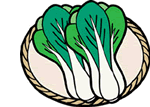
Canal Hamamatsu | Top Page > Child Care > Dietary Habits During Pregnancy
ここから本文です。
更新日:2022年7月19日
Dietary Habits During Pregnancy
Why Dietary Habits During Pregnancy are Important
Maternal Nutrients are the Source for the Baby’s Development
Healthy babies are born from healthy mothers. The food consumed every day by the mother forms the basis for this.
During pregnancy, it is essential to eat well-balanced meals to ensure the growing infant receives all the essential nutrients. Pregnancy is an opportunity to reconsider your dietary habits.
Reconsider your Dietary Habits!
Be careful of these dietary habits! Reconsider your eating habits.!
| ☐ | I tend to skip meals. |
|---|---|
| ☐ | I do not eat at the same time every day. |
| ☐ | I often eat dinner after 8pm. |
| ☐ | I often continue to eat and drink after having had dinner. |
| ☐ | I eat out a lot.(more than 3 days a week) |
| ☐ | I don't chew my food well. |
| ☐ | I eat quickly. |
| ☐ | I eat more at dinner than breakfast and lunch. |
| ☐ | I eat a lot of meals containing oil. |
| ☐ | I like food rich in butter or cream. |
| ☐ | I like to put a lot of salad dressing or mayonnaise on my food. |
| ☐ | I don’t eat vegetables often. |
| ☐ | I often eat sweets at snack times. |
| ☐ | I like snack foods. |
| ☐ | I often drink juice. |
| ☐ | I like fast food. |
| ☐ | I like to stock sweet foods at home. |
| ☐ | I prefer heavily flavored food as opposed to lightly flavored food. |
| ☐ | I don’t like to leave my meals partially uneaten. |
| ☐ | I like to eat when I feel irritated or frustrated. |
Important Points for Diet During Pregnancy
(1) Eat a good breakfast
"I skip breakfast, eat a large lunch and then eat dinner together with my husband late at night; but because I get hungry waiting for dinnertime, I eat lots of sweets and junk food." – Does this sound familiar?
By eating breakfast, your body temperature and blood sugar level go up. Breakfast is important because it makes your body get going. Don't fail to eat it.
(2) Eat a staple food, side dish and main dish
| 1 | Staple Foods | Energy sources such as rice, bread, noodles |
|---|---|---|
| 2 | Side dishes | Eats lots of vitamins, minerals and fiber such as vegetables, mushrooms, seaweed products etc. |
| 3 | Main dishes | Foods high in protein such as fish, meat, eggs, beans |
| 4 | Soups, broths, etc. | Use these to supplement things you don’t normally get enough of. e.g. soups, milk/dairy products, fruit juice |
(3)Chew your food well and eat slowly
Eating quickly or while watching television can lead to overeating. Chewing food properly stimulates the area of the brain that makes you feel full and helps prevent excessive eating.
(4)Considering snacking a part of your meals
Being pregnant requires more energy than normal. As your baby grows bigger day by day, this pushes on your stomach meaning you can’t eat as much in one sitting. Take the nutrients you weren’t able to get during your three meals of the day at other times. Try particularly to avoid eating at nighttime after your evening meal.
(5)Try to make meals yourself
It is okay to eat out every now and then. However, food served in restaurants, fast-food and ready meals contain a lot of oil, salt and energy. Make sure you keep these things in mind when eating out and buying take away food.
When you cook yourself, you are able to control the amount of salt and oil fats being added to the food, and you can also cook dishes using a vast variety of ingredients. You do not have to spend a long time cooking intricate dishes, and you can think of it as practice for when the baby starts weaning.
A Balanced Diet
Make sure to eat three meals a day
- Eat meals at the same times every day
- Don’t eat sweets and cakes instead of proper meals
- Don’t follow restrictive diets
- Enjoy your food, chewing slowly
Nutritionally Balanced

Try to include a staple food, a main dish and a side dish in your meals.
A Skillful Balance
During pregnancy, pay attention to the balance between your diet and how active you are and adjust the amount you eat accordingly.
Also, keep track of changes in weight.
Eat plenty of green and yellow vegetables which are high in folic acid and other minerals. Folic acid is particularly recommended for women in the early stages of pregnancy in order to reduce the risk of defects in neural tube closure in the embryo. You can also eat foods labeled as good sources of folic acid.
Ensure you eat a balanced amount of meat, fish, eggs and soybeans.
An appropriate amount of red meat and fish in your diet will help prevent anemia.
However, take care not to eat too much Vitamin A in the early stages of pregnancy.
It is important to eat a balanced diet to ensure sufficient calcium intake during pregnancy.
- 1. Use a staple food to provide plenty of energy
- 2. Get your vitamins and minerals from the side dish
- 3. Eat an appropriate amount of the main dish to build your body
- 4. Ensure you get enough calcium by including milk, dairy products and a variety of foods in your diet
A Calcium Rich Recipe, Boiled Milk - Bok Choy – serves four
| Ingredients | |
|---|---|
| Bok choy 400g Bacon 2 slices Water 200cc Consommé (stock cubes) 1 cube Milk 300cc Pepper a pinch Corn flour 1 tablespoon +2 tablespoons of water |
 |
| How to cook | |
| 1. Cut the Bok Choy into pieces about 3–4cm wide and the bacon into pieces 1cm wide. 2. Panfry the bacon in a saucepan, add the bok choy and further stir-fry. Add water and the stock cubes and boil. 3. Add the milk and corn flour to 2, stirring until mixture becomes thick. Serve on a dish and enjoy. ◎Calcium content per person 205mg |
|
Foodstuffs To Cut Back On
1. Eat sweets and juice in moderation
You can get energy from sweets and juice, but not the nutrition your body needs. Some contain a lot of sugar and fat and if you eat and drink too much, they can cause obesity and cavities. Also, if you take too much sugar, this can lead to an increase in blood sugar, which, if left uncontrolled, may turn into diabetes. Please take care. Sweets and juice are not a substitute for proper meals, which are the basis for the nutrition your body needs.
2. Don’t eat too much salt
Eating too much salt can lead to several lifestyle-based illness. In particular, it can be a cause of pregnancy-induced hypertension. Try to reduce your salt intake.
Tips for reducing salt intake:
- Put lots of ingredients (vegetables, etc.) in soups and broths and have only one bowl a day.
- Eat the noodles and leave the broth when eating noodle-soup dishes.
- Highlight the flavor of the food with citrus fruits/vegetables (lemon, citron and shiso)
- Use sesame, nuts and seaweed as flavoring
- Use stock made from boiling shiitake mushrooms, konbu and bonito flakes.
- Dilute soy sauce by mixing it with vinegar and soup stock
- Cut back on processed foods and eating out

Balanced Diet Guide


(Ministry of Health, Labour and Welfare/Ministry of Agriculture, Forestry and Fisheries)
As you can see in the chart, in the middle and later stages of pregnancy and during breastfeeding, you have to supplement your normal diet.
You should think of this as an increase in variety rather than in amount..
Things to be Careful of! Problems During Pregnancy!
To adapt to the new state of pregnancy, the mother’s body undergoes many new changes. While pregnant, due to the influence of hormones produced by the placenta and the growth of the baby in the body, the mother’s body goes through large changes.
What is pregnancy-induced hypertension (PIH)?
If you have high blood pressure from 20 weeks into your pregnancy until 12 weeks after birth, or if your urine contains protein at the same time as you have high blood pressure, this is pregnancy-induced hypertension.
The effects of PIH...
...on the mother
- Fits/ Seizures
- Cerebral hemorrhage, liver and kidney failure
...on the baby
- Premature birth, miscarriage
- Effects on the baby’s growth
What is gestational diabetes?
Gestational diabetes is when symptoms of diabetes (high blood sugar) are discovered or begin during pregnancy.
The effects of gestational diabetes...
...on the mother
- An increased risk of diabetes in the future
- Pregnancy-induced hypertension (PIH)
...on the baby
- Large baby, difficult birth, low blood sugar of the baby after birth
Healthy babies are born because the mother has a healthy body herself. Make sure to undergo medical tests, and pay attention to your daily life by eating a balanced diet, exercising an appropriate amount and trying not to become stressed or tired. Enjoy your pregnancy together with your baby.
Prevention Tips
- A regular and proper lifestyle rhythm
- The correct amount of weight gain
- A balanced diet
- Light seasoning
- Eat slowly, chewing well
Contact
Naka Ward / Higashi Ward / Minami Ward / Nishi Ward / Hamakita Ward / Tenryu Ward
Health Promotion Divisions at Local Ward Offices
Kita Ward
より良いウェブサイトにするためにみなさまのご意見をお聞かせください